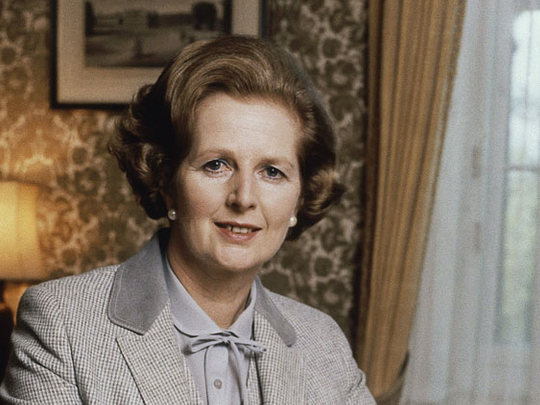
Dubai: Margaret Thatcher played a vital part in mobilising international support for the liberation of Kuwait after the invasion by Saddam Hussain’s forces on August 2, 1990.
“George, this is no time to go wobbly!” Thatcher famously admonished President George HW Bush, as she drew on her experience in launching and winning the Falklands War in 1982.
Bush was crucially encouraged by Thatcher and started to prepare for possible military action to free Kuwait. On August 6, both Thatcher and Bush had led the UN Security Council to pass Resolution 661, which placed economic sanctions on Iraq, and also authorised force in the event Iraq did not retreat.
Thatcher said that she felt “we ought to throw Saddam out so decisively that he could never think of doing it again”.
By January 15, 2001, Iraq has refused to retreat and the massive operation of Operation Desert Storm started the counter-invasion of Iraqi-occupied Kuwait by 500,000 American troops and allies from Britain, the six GCC states, and 34 other nations.
As UK Prime Minister, Thatcher had been a frequent visitor to all the Gulf states, coming to the UAE several times when she met leaders in both Abu Dhabi and Dubai. She held long and detailed conversations on how to maintain and develop Britain’s joint interests with the GCC states.
But after Thatcher demonstrated her determination that Kuwait must be liberated, she was welcomed by the Gulf for ever after as a close and valued friend. It made little difference that she had been toppled by the Conservative Party on November 22, 1990, on the eve of the war that she had planned with the GCC leaders and the US. Throughout her retirement, the Gulf remembered her as one of the main architects of the liberation of Kuwait.












